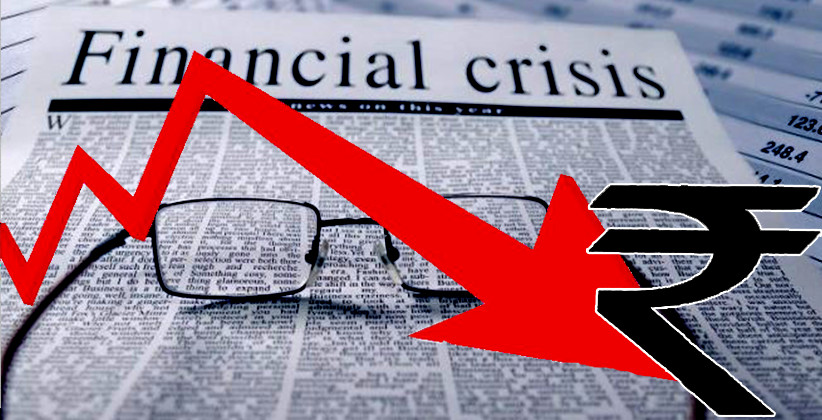The situation that the country is experiencing when it comes to economic and financial stability, things are seen to be treading on a tough path as observed since quite some time.
The ongoing critical situation amid several lockdowns and curfews our nation is heading towards, makes one wonder if it is the time wherein a situation might arise that will provoke the Government to declare a financial emergency.
So what is a Financial Emergency under Article 360?
A financial emergency is likely declared in a country when the financial stability in India or any part of the state is in acute danger and the President feels that it is the right choice to declare an emergency.
He can do so by means of proclamation under Article 360 of the Constitution.
Proclamation issued in this regard, if at all issued by the President of India:
(a) will be laid before each House of Parliament;
(b) shall cease to operate at the expiration of two months, unless before the expiration of that period it has been approved by resolutions of both Houses of Parliament.
Such a proclamation has to be approved by a simple majority in both houses. If Lok Sabha is dissolved, then the Rajya Sabha can approve it but Lok Sabha has to approve it too within 30 days of first sitting after its been reconstituted. If it gets approved by both the houses then the Financial Emergency can operate as long as the circumstance requests and might be repudiated by a subsequent proclamation without the approval of both houses.
During this period, the executive authority of the union extends in giving directions to the state to observe the canons of financial propriety as specified in the directions laid down and further to which they may include:
- A reduction in the salaries and allowances of all or any class of person serving for the state or the union.
- A provision that requires the money bills and financial bills to be be reserved for the President's consideration after having been passed by the legislative assembly of the state.
No emergency under Article 360 has been declared till date.
It has been seen that the country is going through one of the worst financial crises in its 72 years of History. The growth GDP has reduced drastically and has been further reduced because of the corona pandemic raging in.
Enumerating how the economy is falling to its worst downturn and the factors which might lead to financial emergency in the country:
1. The reserve bank of India has already made a war room of 90 people and is thereby keeping an eye on the economy and monitoring each and every move.
2. It has been reported that Foreign investors have pulled out a total amount of 1.08 lakh crore rupees from Indian market in just 15 trading sessions
3. Almost 80% of the Indian companies are asking their employees to work from home. Companies like Go Air and Air India have asked their staff to go on unpaid leave and many companies have terminated several employees too.
4. Almost 80% of the major financial centers of the country are in lockdown thereby digging a deeper trench in the crisis.
5. The US Dollar has the all-time high value against Indian currency, as on 24th March, 2020, 1 USD is equal to Rs. 76.1700.
6. Corona cases in India are nearing the 500 mark.
7. Several sectors including hotels, restaurants, night clubs, bars, airlines, BPO, tourism, entertainment, auto-mobile, aviation, hospitality, apparel, consumer durables and electronics, Poultry and Seafood, construction, transport, railway are worst hit by this epidemic and many of them have been ordered shut.
8. Several sectors like oil-petrol, security service industry and many others whose revenues are directly & indirectly dependent on the above sectors have been drastically affected and changes have been seen in their revenue rates.
9. Coronavirus infection is spreading at a very fast rate and chances are that Indian agencies will not be able to curtail it once it enters the fourth stage.
10. Chances of coronavirus spreading among people below the poverty line will soon escalate into a situation that will create a difficulty in curtailing it because of the lack of healthcare equipment. Large amount of revenue will likely be invested to handle the situation if it goes in that direction.
11. Contingency funds and emergency funds have already been depleted after RBI gave large amount of funds from the reserved stored funds to the current government.
12. The rate of Non Performing Assets is high in several private and government sectoral banks to which the loan defaulters are yet not paying off the debts.
13. The share markets of India, including the National Stock Exchange (NSE) and Bombay Stock Exchange (BSE) are continuously falling each day.
One can understand that curtailing the spread of virus and maintaining the economy at the same time is a difficult situation. We need to see where the country is headed towards now.
Author - Dyuti Pandya







